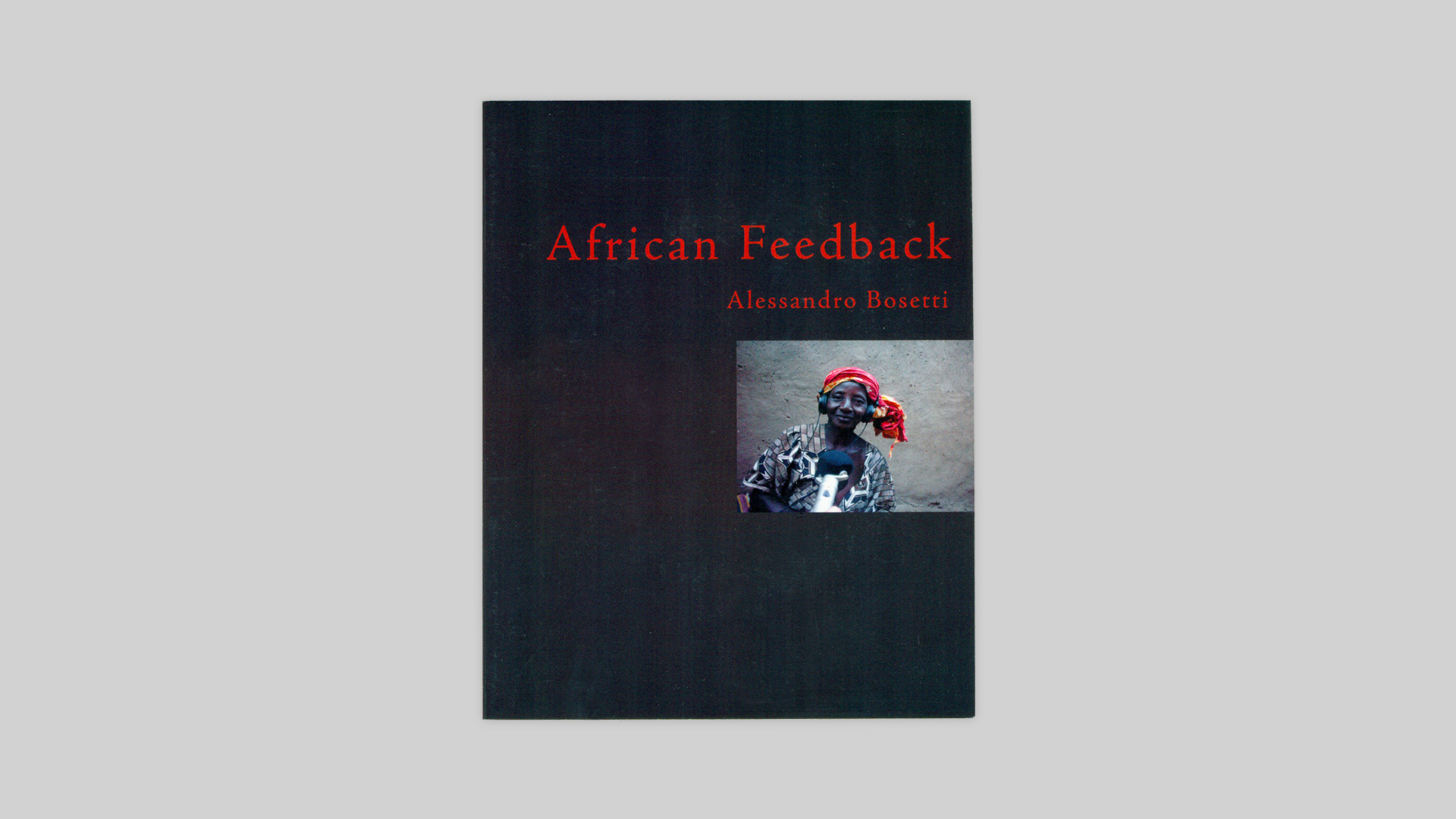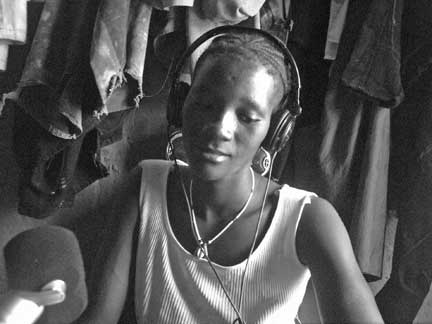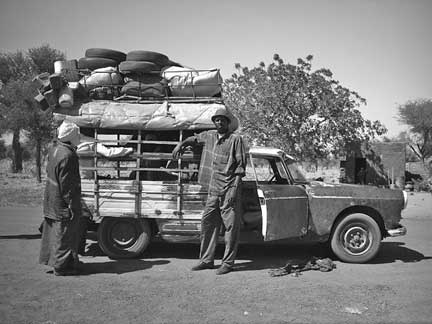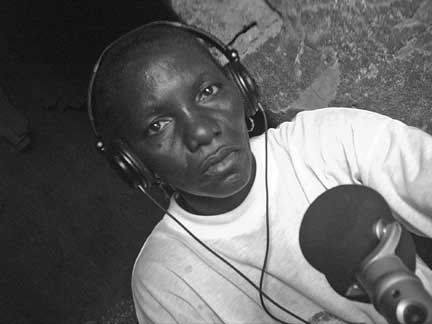
African Feedback
Alessandro Bosetti
Artist Interview
Interview with Alessandro Bosetti on his African Feedback project
Brandon LaBelle: I wonder if you could say something about what led you to Africa, what was this motivation or impulse, to go there?
Alessandro Bosetti: Eventually I realized how I could have carried out this project everywhere. At the time I was thinking of Marcel Griault’s “Dieu D’Eau” and that I would have liked to make a parody of it. I landed in Dogon land, Mali. Dogon are controversial, they already re-negotiated their identity with modernity and the western voyeurism. The interaction was interesting but "dirty". A lot of crossed feedbacks, expectations. They tried to figure out what I wanted to hear. I also moved a little aside and went to Mossi land in Burkina Faso. There things went very differently. I could have done the same around Berlin since I was living there at the time and call it “Brandenburg Feedback or “Lombardy Feedback” in my Italian hometown Milan. Sometimes it’s enough to walk to the next block to be “outside”, out of the “western paradigm”. It took a little while to understand that.
B: What is so wonderful about the project are these differences that surface in your dialogues with the people you meet during your travels, and how all of these differences exist or are brought forward through the question of music. I was curious if you feel these dialogues have changed or effected your sense about music, and its place in society?
A: Absolutely. Many anthropologists believe that you can understand a feature of your culture just if you have been experiencing how that same feature or a comparable one is dealt with in another culture. This applies perfectly to this project. I tested myself as a musician in another context and realized how many things we just believe to be universal about music simply do not work once you step out of your context. This may sound banal. I could have felt book smart about it after reading a multitude of essays on globalization and multicultural world.
But experiencing it directly is different. Having somebody in front of you that don’t even recognize as music the output of your work as a musician could be shocking. It influenced the way African Feedback was composed and all my work after that since my aesthetical beliefs had been deeply challenged. Mostly in subterranean ways which are difficult to describe verbally or consciously understand. Music in Africa is a collective experience, individual judgment is very rare. Also the body is extremely present. In many African languages there's just one word for both "music" and "dance". It wasn't much about that though. It was more the way music is for me or for "us" – as broad that "us" could be –. The project it's some kind of a big mirror eventually becoming a mask. Does it makes sense to you ? Masks are fun to wear.
B: You've spoken about the notion of mishearing, and the slips of the tongue. Can you say more about what this opens up for you, or what you feel it reveals?
A: I like to listen to languages I don't understand. I don’t know why. It’s like that. Im curious. Maybe It's because I’ve never been seriously threatened by the unknown. I’ve been lucky enough to grow up in a safe environment and to develop curiosity. One of the most precious and luxurious gifts that have been given too me.
My father is a traveller, he travelled almost to every country of the world and since I was a child I was used to get stories, images and objects coming form very far away universes. Thinking about it right now I realized that the sound and the voice were something missing in that experience. Years later I had the chance to hear how a real foreign language sounded by the voices of people using it and this has never lost it’s magic to me. The fact that you don't understand it now but you could potentially understand it later gives a powerful feeling.
It applies to many things. The first time I listened to John Coltrane's ascension for example. Sounded like a mess to me. Eventually it started to make sense to my ears. It still does. I remember the shift in perception. How it felt before and after. It's a powerful process.
I’m quite a traveler myself. I've been living in Germany for some years. I live now in the United States and just in the past year I've been traveling and residing for long periods in many places such as Italy, Mali, The Netherlands, China, Japan, Taiwan, France, Sweden … I'm often overexposed to cultural difference. This is not just by chance. There’s something in my character that makes me be that way. It’s not escaping – or at least, there’s much beyond that factor –. I’m glad to be that way because it’s one of the few thing of my life where I feel I going along with the “trend”. The world is melting, in a very discontinuous way and nobody seems to know how to cope with it.
As far as I am concerned in guessing I think there are two approaches in trying to survive:
A – an all embracing, positive persuasion that general agreement and comprehension is possible.
B – the acceptance that cultural horizons are fragmented and, even if the main predicates of humanity are the same for all, we may not be able to understand each other. At least for now. Even if I feel motivated to share my life with people from different or very different cultural backgrounds (I think it's becoming unavoidable in our world), I feel more comfortable with the second option.
That's kind of an answer I guess.


